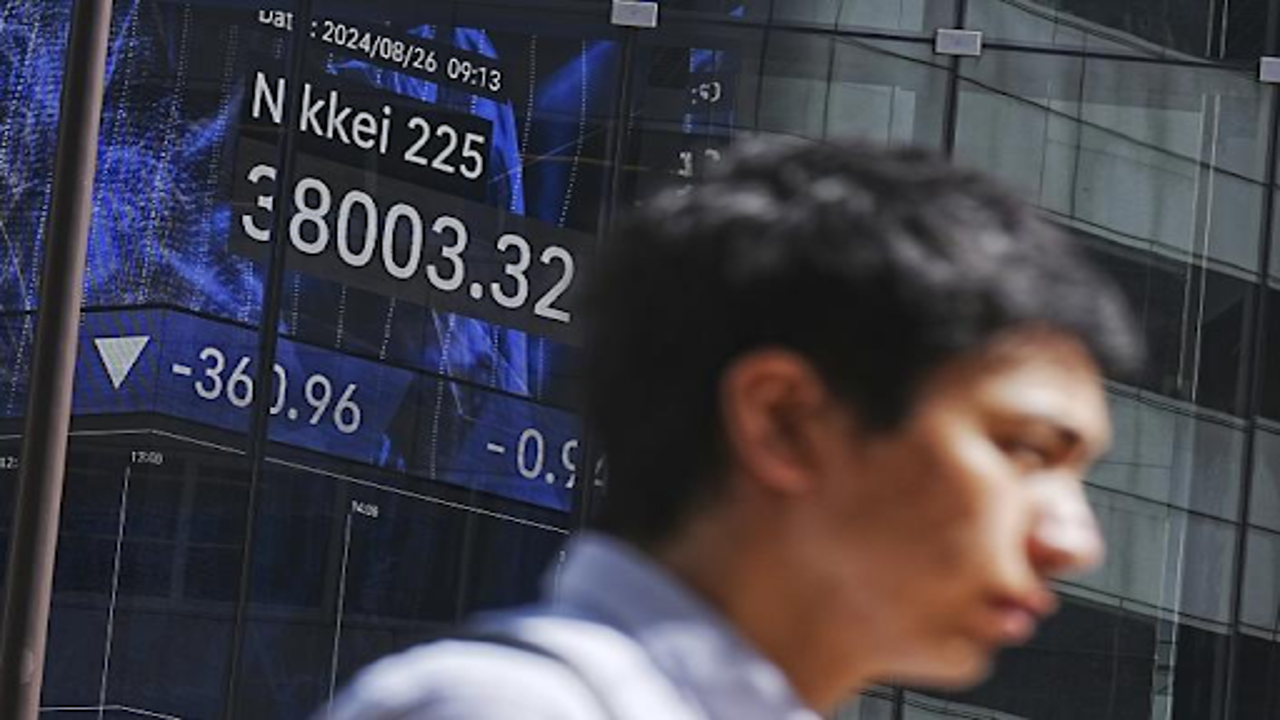
Asian stocks show varied results as U.S. markets surge on hopes for upcoming interest rate cuts. The Associated Press
Asian stock markets showed mixed results on Monday after U.S. stocks surged toward record highs, fueled by expectations that the Federal Reserve will soon cut interest rates to support the economy.
U.S. stock futures edged down, while oil prices increased due to concerns about potential supply disruptions. This followed heavy clashes between Israel and the Lebanese militant group Hezbollah early on Sunday.
On Friday, Federal Reserve Chair Jerome Powell indicated that it might be time to lower the main interest rate, which has been at a 20-year high. Powell said, “The time has come for policy to adjust.” He emphasized that decisions about rate cuts will depend on new data, future outlooks, and risk assessments.
Powell’s remarks caused the yen to strengthen against the dollar, with the dollar-yen rate dropping by 0.30% to 143.95 in early trading. Meanwhile, Japan’s Nikkei 225 index fell by 1.1% to 37,944.68 due to the stronger currency. The Bank of Japan’s governor hinted at possible future rate hikes if inflation targets aren’t met and noted the bank’s close watch on recent stock and currency market fluctuations.
In other markets, Hong Kong’s Hang Seng index rose by 1.0% to 17,786.31, while the Shanghai Composite index fell slightly by 0.1% to 2,852.34. Australia’s S&P/ASX 200 gained 0.7% to 8,076.10, and South Korea’s Kospi decreased by 0.2% to 2,695.24.
On Wall Street, the S&P 500 climbed 1.1% to 5,634.61, approaching its all-time high and recovering most of its losses from a recent market dip. The Dow Jones Industrial Average also rose 1.1% to 41,175.08, surpassing 41,000 for the first time since its record-setting July. The Nasdaq composite jumped 1.5% to 17,877.79.
Powell’s speech marked a significant shift from the Fed’s earlier stance when it raised rates to combat soaring inflation. He acknowledged that many inflationary pressures have eased and described the job market as less overheated. This shift allows the Fed to focus on supporting a slowing economy while avoiding a potential recession.
Despite the positive market reaction, there are concerns that investors may have set their expectations too high for the Fed’s actions. If the Fed’s decisions fall short of these high expectations, it could negatively impact various investments. For example, the S&P 500 experienced a notable drop last Thursday as Treasury yields rose.
On Friday, Powell’s speech sparked a broad rally on Wall Street, with smaller stocks in the Russell 2000 leading the gains, rising 3.2%. These smaller companies stand to benefit more from lower interest rates due to their borrowing needs. More than 85% of stocks in the S&P 500 index also saw gains.
In the bond market, the yield on the 10-year Treasury fell to 3.79% from 3.86% the previous day, and the two-year Treasury yield dropped to 3.91% from 4.01%. In energy markets, U.S. crude oil prices increased by 51 cents to $75.34 per barrel, while Brent crude, the international benchmark, rose by 56 cents to $78.71 per barrel.















